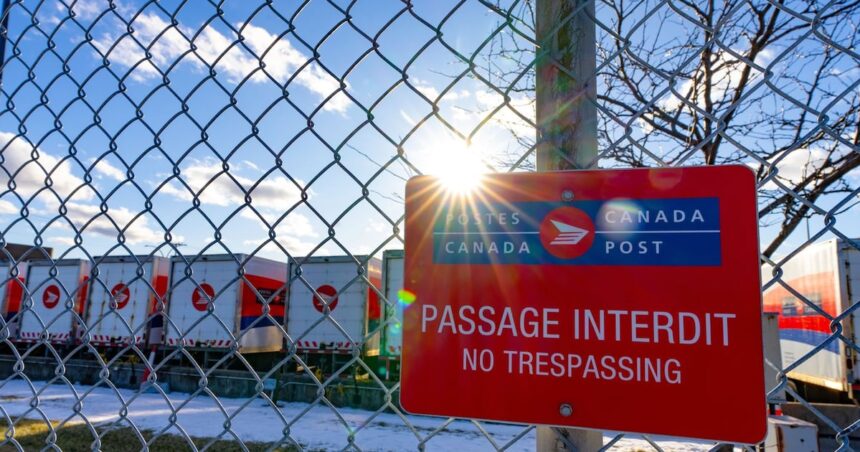The ongoing dispute between Canada Post and its largest union has reached a critical impasse this week, as the Canadian Union of Postal Workers (CUPW) claims the Crown corporation is refusing to engage in binding arbitration despite mounting pressure from businesses and consumers across the country.
“We’ve been ready to meet halfway on critical workplace issues since April, but management continues to stonewall meaningful negotiation,” said Julianne Richards, CUPW National President, during yesterday’s press conference in Ottawa. “Their refusal to enter binding arbitration shows a concerning lack of commitment to resolving this dispute.”
The standoff, now entering its third week, has significantly disrupted mail service across Canada, with processing backlogs growing in major distribution centers in Toronto, Montreal, and Vancouver. Small businesses reliant on mail order deliveries report average revenue losses of 27% according to a survey released by the Canadian Federation of Independent Business.
Canada Post spokesperson Martin Chen defended the corporation’s position, telling CO24 News that “arbitration at this stage would undermine the collective bargaining process. We remain committed to reaching a negotiated settlement that balances worker interests with fiscal responsibility and the evolving realities of postal services in the digital age.”
At the heart of the dispute are fundamental disagreements over pension reforms, wage increases that account for inflation, and workplace safety measures. The union is seeking a 3.8% annual wage increase over three years, while Canada Post has countered with 2.2%, citing financial constraints and declining letter mail volumes.
Labour Minister Carolyn Desjardin has urged both parties to intensify negotiations, though she has stopped short of introducing back-to-work legislation that would force an end to the dispute. “The federal government believes strongly in the collective bargaining process,” Desjardin said in a statement released through her office. “We expect both parties to negotiate in good faith toward a resolution.”
Economic analysts estimate the dispute is costing the Canadian economy approximately $25 million daily, with impacts particularly severe on rural communities where digital alternatives to postal services remain limited. The disruption comes at a particularly challenging time as businesses continue recovering from economic headwinds that defined the early 2020s.
Pension reform remains perhaps the most contentious issue. CUPW is fighting to maintain the defined benefit pension plan for all employees, while Canada Post has proposed moving new hires to a defined contribution model, citing long-term sustainability concerns and an $8.7 billion pension solvency deficit.
“This isn’t just about current workers,” explained Dr. Eliza Montgomery, labor economics professor at Ryerson University. “It’s about the future viability of public postal services and what kind of retirement security we believe essential service workers deserve in our society.”
As the dispute drags on, Canadians are left wondering: in an era of digital communication and private courier services, will this protracted labor conflict accelerate the decline of traditional postal services, or might it instead catalyze a long-overdue modernization of one of the country’s oldest public institutions?










